By KATHRYN CAMPBELL
Bahamas Information Services
#Nassau, The Bahamas, August 29, 2022 – A roundabout is being added in front of Queen’s College and the Bahamas National Trust to improve the safety of motorists and pedestrians who traverse Village Road, a major New Providence thoroughfare. The Ministry of Works and Utilities announced plans for the addition during a walkabout Friday, August 26, 2022.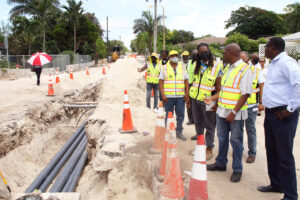
“There are some additional works which are being scoped related to installing a roundabout in the front of Queen’s College and the Bahamas National Trust,” said Minister of Works and Utilities the Hon. Alfred Sears.
“We will be meeting with both of those stakeholders to discuss further what is intended in order to make this roadway more efficient and also improve the quality of life not only of the residents in this community but also the guests who come as students, teachers to Queen’s College and also guests and patrons to the National Trust and the other commercial establishments on Village Road.
The $6.4 million project which started in January of this year is expected to be completed in November. The project includes the installation of pipes and 8-inch water main for the entire length of Village Road, improvements to several junctions, lane widening, adding turning lanes, video camera traffic systems, underground work, repaving, new signage and striping.
Minister Sears led a team of engineers, representatives of Knowles Construction, the Bahamas National Trust and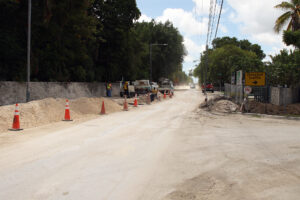 media on a tour of the project from Queen’s College to the entrance of St. Andrew’s Drive. Bacchus Rolle, Parliamentary Secretary, and Luther Smith, Permanent Secretary were also present.
media on a tour of the project from Queen’s College to the entrance of St. Andrew’s Drive. Bacchus Rolle, Parliamentary Secretary, and Luther Smith, Permanent Secretary were also present.
Resident engineer Albrion Symonette Jr. said the roundabout will require the installation of a circle and additional road pavement.
“The current situation has a lot of turning movements where there are conflicts and points at which cars can potentially crash and also creates a danger for pedestrians.
“Replacement of the roundabout will require us to do some demolition, some relocation of walls and relocation of vegetation. Once that is done that will improve the efficiency, flow of Village Road and also improve the safety of motorists and pedestrians most of whom are children because it’s a school zone after all.”
Mr. Symonette said among the challenges faced on the project is underground utilities.
“As you’re digging there are instances where you actually damage pipes. Damages along the way have caused some delays and setbacks,” he said.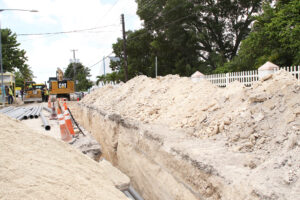
Minister Sears highlighted the “extraordinary” collaboration with Knowles Construction, BPL, WSC, Cable Bahamas and the Ministry of Works and Utilities and celebrated the design and construction of the project by Bahamians.
“This project was designed by Bahamians. It is also being constructed by Bahamians so we have the Bahamian technical expertise and creativity who have carried the entre design process and now Bahamian expertise constructing and installing the infrastructure. This is a fact that we ought to celebrate that in The Bahamas a local talent in the Ministry and the private sector has undertaken this major project and it will be world class.”
“You would have seen as we did the walkabout this afternoon in some places excavation going to 8 ft., where cables are being laid not only for the present use but also for the further expansion going all the way to Paradise Island so that the infrastructure is being not only fit for present purpose but also for the expected expansion and rehabilitation along the way of the existing infrastructure.”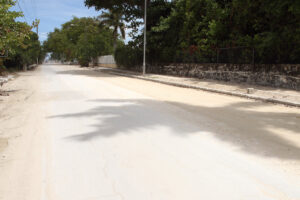
He extended thanks to stakeholders including businesses and residents for their “extraordinary” cooperation and the courtesy demonstrated by motorists as they are diverted from major roadways to side roads. “The report that I have gotten from Mr. Symonette is that the stakeholders have been extraordinarily cooperative. I want to thank all of the stakeholders, apologize for any convenience but by November we will have a dramatically improved road, sidewalks, and more efficient infrastructure along this very central road.”
PHOTO CAPTIONS:
Header: Pictured first left: the Hon. Alfred Sears, Minister of Works and Utilities, leading a tour of the Village Road Improvement Project Friday, August 16, 2022. Also shown is Albrion Symonette Jr., resident engineer (centre) and Parliamentary Secretary Bacchus Rolle.
1st insert: Resident engineer Albrion Symonette Jr. (first left) along with the Hon. Alfred Sears, Minister of Works (centre) and Bacchus Rolle, Parliamentary Secretary, discuss the Village Road Improvement Project during a tour Friday, August 26, 2022.
2nd insert: A view of the Village Road Improvement Project at the entrance to Queen’s College and the Bahamas National Trust.
3rd insert: A scene from construction on the Village Road Improvement Project.
(BIS Photos/Patrick Hanna)
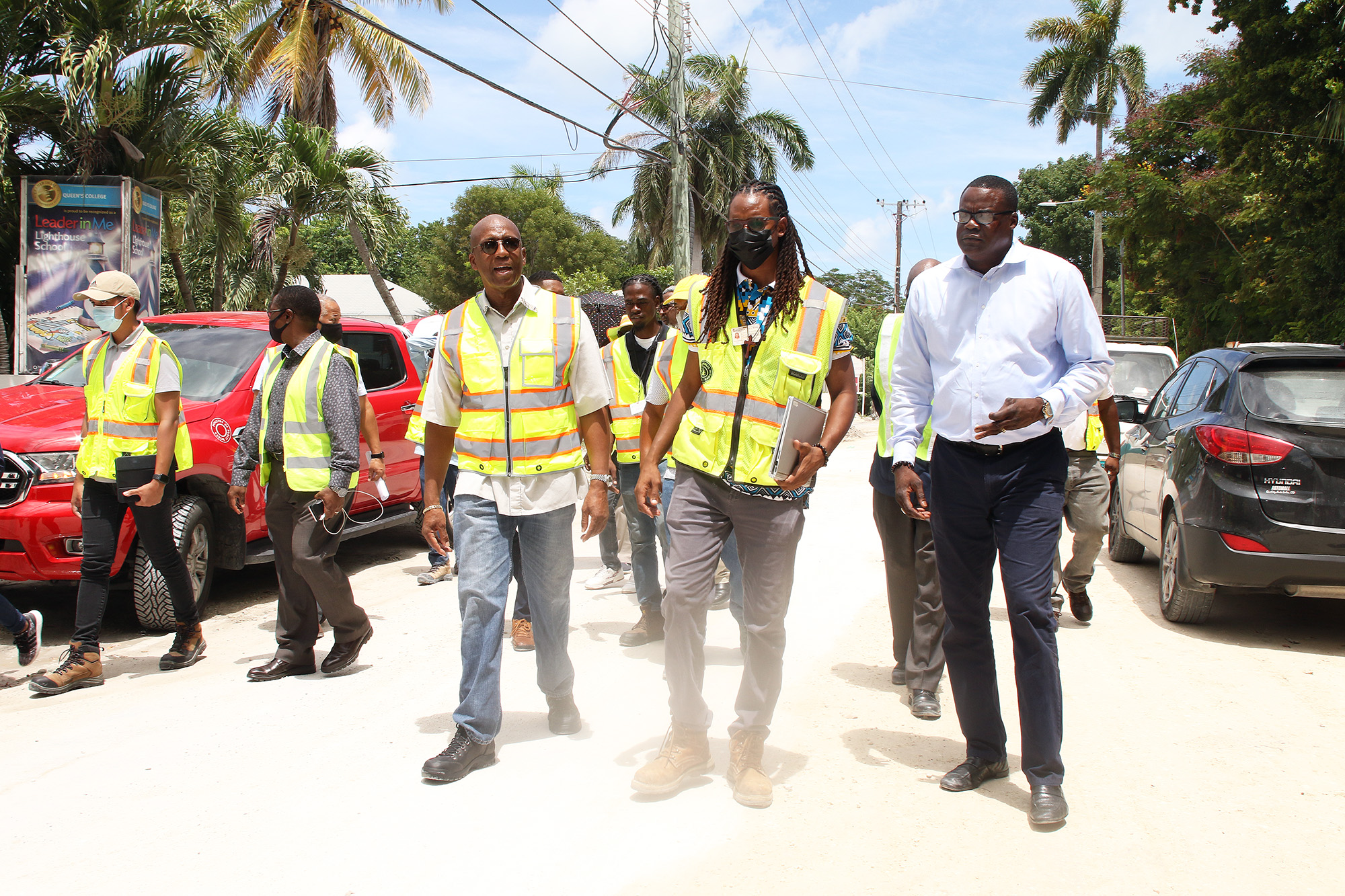

 Bahamas News1 week ago
Bahamas News1 week ago
 Health1 week ago
Health1 week ago
 News6 days ago
News6 days ago
 Caribbean News1 day ago
Caribbean News1 day ago















